Overclocking
Unless you’ve been living under a rock, you probably already know that AMD does an exceptional job of squeezing every bit of performance out of silicon with its Precision Boost algorithms. This typically does a better job at managing clock speeds based on power and temperature than a manual overclock and manually tweaking disables this, but we’ll give it a try anyway.
We’ll first try just flipping into ‘Performance Mode’ In the Phantom Gaming Tuning tool.
This actually drops our score notably from stock in both single-thread and multi-thread testing modes.
We’ll switch over to manual and push to a nice even 4.0 GHz. This necessitates bumping voltage to 1.205V on the core.
While we gain some performance back but still not quite enough to match stock.
We get 4.10GHz stable at 1.226V.
This finally lets us clear the stock score of 7215 by a few points.
With some more tweaking, we managed to get 4.15GHz fully stable at 1.265V.
This accounts for a Cinebench 20 score of 7400 points even. We weren’t able to get a higher manual clock fully stable. All in all, this gives us about a 2.6% increase in multi-core performance, at the cost of significant single thread performance loss. In single-threaded workloads, it’s not uncommon to see clock speeds north of 4.6GH, here, we are holding it back to less than 4.2GHz. Now you can see why manual overclocking is nearly pointless for average users.

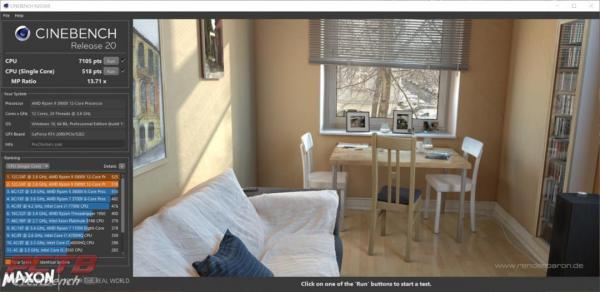



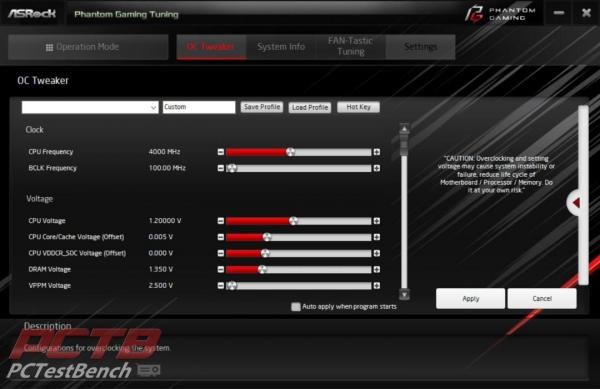
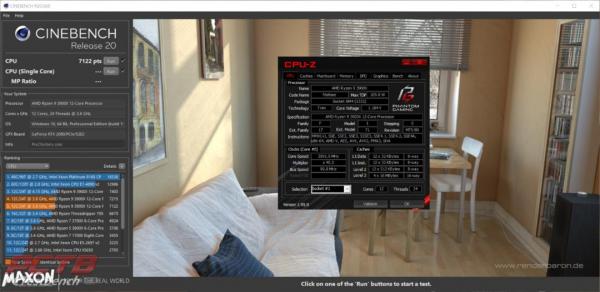
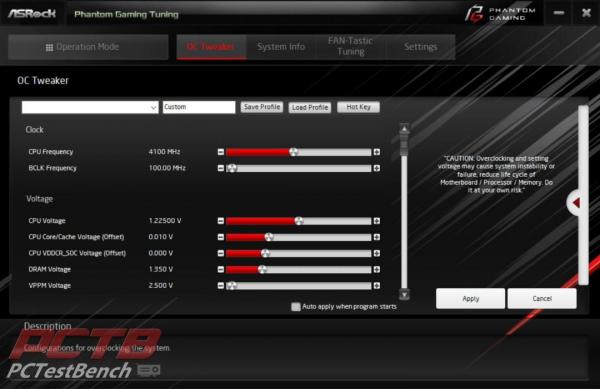
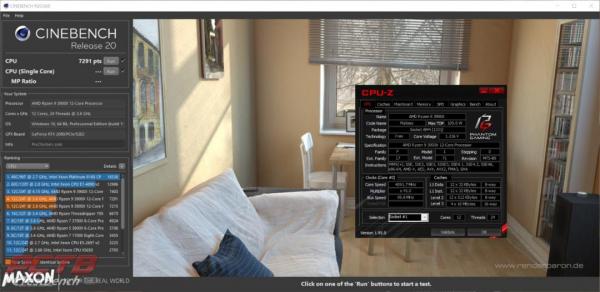
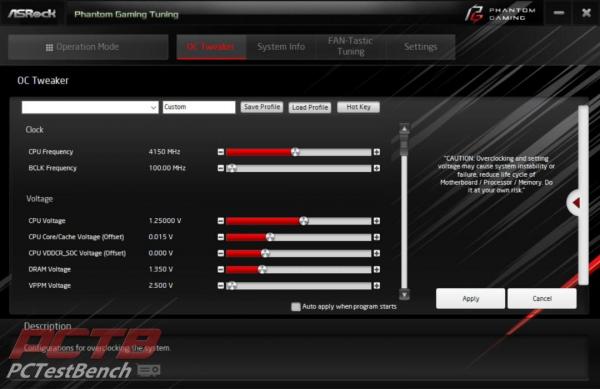
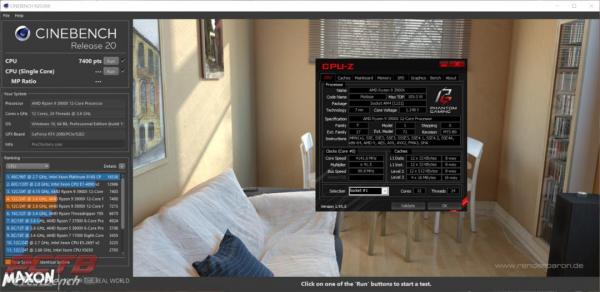


Check Out Our Amazon Store with Modders Inc
Please Support PCTestBench as Every Purchase Helps